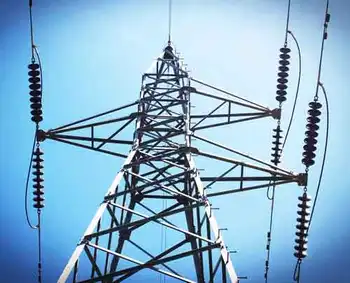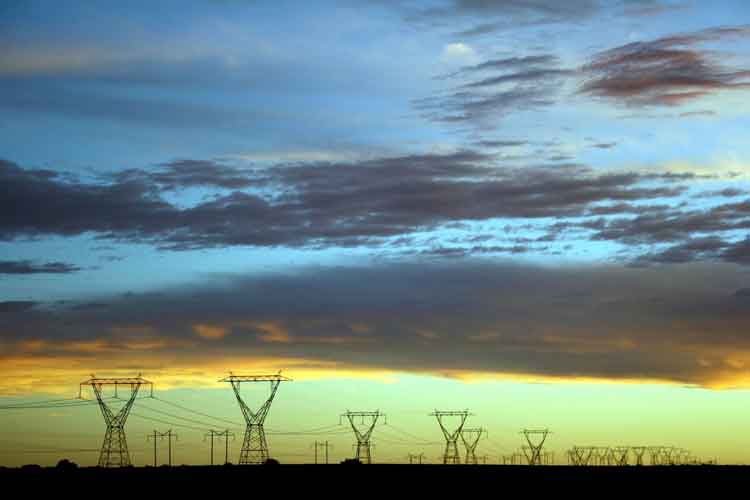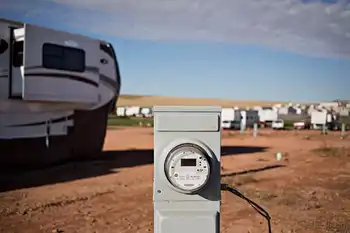McCain supports an energy tax
SOUTH CAROLINA - McCain's victory in Florida and Giuliani's endorsement give the Arizona senator a commanding lead in the Republican race. But as GOP leaders and the rank and file draw closer to him, will he rejoin his party?
It was thought that John McCain might have trouble in Florida, a state where only registered Republicans can vote. But he beat Mitt Romney by a not inconsequential margin, and Romney must be kicking himself for withdrawing from the South Carolina battlefield early when he might have derailed the so-called "straight-talk express."
It is said that since the Reagan era, every winner of the South Carolina primary has gone on to win the GOP nomination. Unfortunately, McCain is no Reagan.
He is now advancing on the strength of two main issues — his status as a genuine war hero who was right on Iraq, and the fact that surveys say he is the only Republican candidate who can beat Hillary Clinton.
We're certainly no fans of Hillary, and electability is an important factor in choosing a nominee. But more important is who should be elected.
On most issues (defense and abortion are two big exceptions) McCain is indistinguishable from Hillary, and — if elected — he's likely to face a Democratic Congress ready to agree with him.
We are concerned — and we think the GOP base should be too — about the ringing endorsement given to McCain by the New York Times. It praised him for "a record of working across the aisle to develop sound bipartisan legislation."
What the Times had in mind is legislation such as the assault on the First Amendment known as McCain-Feingold. That campaign finance law ironically makes it illegal for American citizens to run ads praising either Mr. McCain or Mr. Feingold within a specified time before a primary or general election.
Or maybe they were thinking of McCain and John Kerry being initial co-sponsors of the 35-mpg Corporate Average Fuel Economy (CAFE) mandate that just passed Congress. Estimates are that it will cost the domestic auto industry $85 billion over a decade and kill off thousands of jobs.
McCain supports an energy tax in the form of a bill co-sponsored with Joe Lieberman that would cap the amount of carbon dioxide that energy-producing companies could emit. It is essentially an energy-rationing scheme not unlike Bill Clinton's infamous BTU tax.
He also voted to withhold cuts in the top tax rate until Congress passed a Medicare prescription drug benefit — at an estimated cost of $1.2 trillion over 10 years.
McCain now styles himself a fiscal conservative. But the spending on the drug benefit alone dwarfs all the "cuts" in pork-barrel spending he has proposed.
Then there's McCain-Kennedy-Edwards, the so-called patients' rights bill, which in fact opened the door to runaway litigation and soaring medical costs, while helping to enrich trial lawyers.
McCain also has joined forces with Ted Kennedy to support amnesty for illegal aliens, though he and his supporters deny that's what their legislation is about.
In 2003, McCain told the Tucson Citizen that "amnesty has to be an important part" of any immigration reform. He also rolled out the canard about illegals who do "jobs that Americans simply won't do."
"I got the message," he told the voters of South Carolina. "We will secure the borders first." Yet, according to a recent profile in Vanity Fair, he told executives in Milwaukee: "By the way, I think the fence is least effective. But I'll build the (expletive) fence if they want it."
McCain has fences to build and mend with the GOP's conservative base and in more than a politically expedient way. On issue after issue — from tax relief to the development of Alaska oil to due-process rights for terrorists — he has not only reached across the aisle but defected to the other side.
Despite what the mainstream would have us believe — that McCain is now Mr. Inevitable — we think this primary season has at least another week to go.
But if McCain does emerge as the GOP standard-bearer, our fear is that voters in November may ask why they should vote for a Republican who works with the Democrats when they can vote for the genuine article.
Related News

N.B. Power hits pause on large new electricity customers during crypto review
FREDERICTON - N.B. Power says a freeze on servicing new, large-scale industrial customers in the province remains in place over concerns that the cryptocurrency sector's heavy electricity use could be more than the utility can handle.
The Higgs government quietly endorsed the moratorium in a cabinet order in March 2022 and ordered a review of how the sector might affect the reliable electricity supply.
The cabinet order, filed with the Energy and Utilities Board, said N.B. Power had "policy, technical and operational concerns about [its] capacity to service the anticipated additional load demand" from crypto mines.
It said the utility had received "several…




